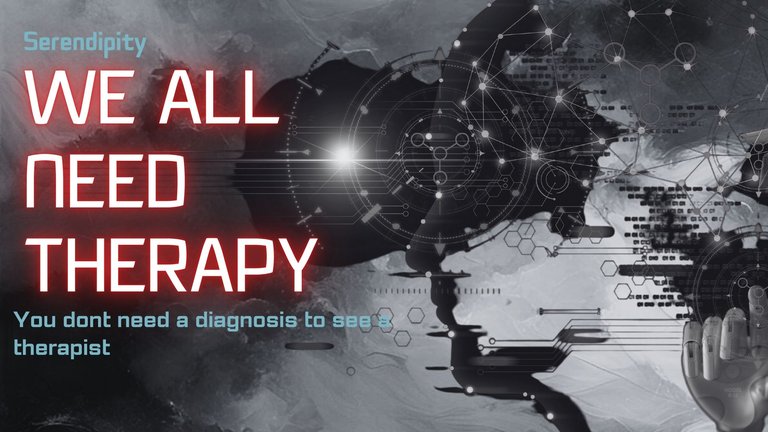
Imagine that you have a car—if you have a car, you will not need to imagine what I am about to say. Imagine that your car starts to make a strange noise. The noise is small at first, something you think will go away on its own. But it doesn’t. It continues to get worse the longer you wait. In fact, most people will not wait; they would be at the mechanic the very next day.
You may not know what the problem is, but you will not wait until the noise becomes deafening or there is a massive fault in the car before you take it for repairs.
Now imagine that car is your mental health. You feel emotionally "off." Mentally, you feel drained. Maybe you just lost a job or a contract, and you are trying to get through it. Waiting to address these feelings is like ignoring the strange noise in your car. Seeking help—even if you’re unsure what’s wrong—is the proactive approach to maintaining your well-being.
Reframing Therapy Stigma

There is a fallacy that persists, especially within certain cultures: the idea that seeing a therapist means you are crazy. Some people believe that only those who are mentally deranged need to see a mental health specialist.
This misconception has led to massive stigma in such communities. People raised in these environments often find it extremely difficult to admit they need the help of a mental health professional. They would rather sit on their own, cry in bed, and wipe their tears with their sweat than talk to someone trained to help with mental health issues.
It’s time to reframe this narrative. Seeking therapy does not mean you’re crazy; it means you’re human. Just as you would visit a doctor for a persistent cough or a mechanic for your car, therapy is simply a tool for addressing challenges in your emotional and mental health.
The Mind Gym
Working out is fun for a lot of people, and anyone who does it knows that when you stop, you start to lose all the strength you’ve built. Working out strengthens your body; therapy strengthens your mind.
We tend to underestimate how much we need to develop our minds and resilience until we face one of those overwhelming moments in life where we have to keep moving despite the pain. The world moves at a relentless pace, making it easy to feel stuck and burnt out.
Therapy equips you with tools to manage your mind and time, helping you stay grounded even in life’s chaos. Without these tools, anxiety can become a constant presence, creeping in even when there are no immediate pressures or deadlines.
Therapy: Skills, Not Quick Fixes

A common misunderstanding about therapy is that it’s a quick fix for emotional turmoil. Therapy isn’t about immediate solutions; it’s about learning lifelong skills. These skills help you regulate your emotions, communicate effectively, and gain control over how your mind works.
Consider Tony, who feels unheard at family meetings. As a non-confrontational person, he bottles up his emotions, which could lead him to unhealthy coping mechanisms over time. Therapy would help Tony learn to express himself clearly and assertively without resorting to avoidance or conflict.
Therapy teaches you how to navigate life’s complexities, from improving relationships to managing stress. These are not quick fixes but investments in long-term emotional well-being.
Therapy Is for Everyone
“Therapy is for people with depression and anxiety—I have neither, so I don’t need therapy.”
Anyone who says this likely misunderstands the purpose of therapy. Therapy isn’t limited to treating mental health disorders; it’s for anyone navigating life’s transitions and challenges. Starting a new job, getting married, becoming a parent, or simply wanting to improve self-awareness are all valid reasons to seek therapy.
Therapy provides a safe space to process emotions, gain perspective, and build resilience. Life itself—with all its uncertainties, relationships, and transitions—is a reason to embrace therapy.
Conclusion: Thrive, Don’t Just Survive
Going to therapy doesn’t mean you are weak or broken. It means you are taking proactive steps to show up for yourself. Therapy helps you learn new skills, grow, and thrive—rather than just survive.
We all need therapy, some more than others. But the reality is that ignoring your mental health is like ignoring that strange noise in your car. Therapy is an essential tool to cope with life’s challenges and emerge stronger and more resilient.
Take the step. You deserve it.
